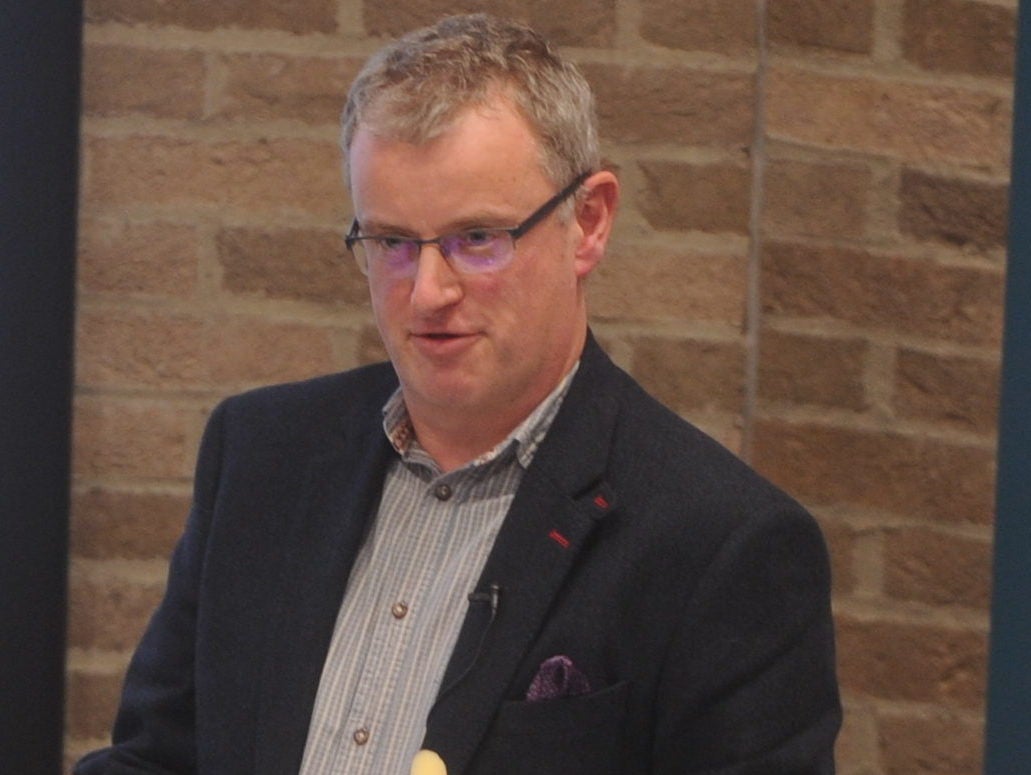
The editor of the Manchester Evening News has said he will never use a picture of the terrorist who killed 22 people at a pop concert in the city earlier this year on his front page.
Rob Irvine said he made the decision not to put Salman Abedi on the MEN’s front page in the wake of the Manchester Arena attack in May, adding: “And while I’m editor I never will”.
He said: “[Abedi] would love to be on our front page, I’m quite sure… but certainly the feedback we were getting from our readers and from my own thoughts and the thoughts of our team were that he doesn’t deserve to be on the front page and he certainly doesn’t deserve to be pictured alongside the people he murdered.”
Irvine said he chose his words carefully in reporting the aftermath of the attack, referring to Abedi as a “murderer” not a “suicide bomber” and the 22 not as his “victims” but as those he murdered.
He said: “We would rather talk about the amazing people at Manchester, not just emergency services, but the guys who were working the arena and at nearby Victoria station, men and women who ran towards danger… I would rather celebrate them on the front page, to be quite honest.”
The MEN helped raise millions for the families of those caught up in the blast at the Manchester Arena.
Irvine made his comments in a speech at the Society of Editors annual conference, which this year was held in Cambridge and centred on the theme of “fighting for real news”.
He later joined a panel discussion on reporting terror, which included the Met’s assistant commissioner for specialist operations Mark Rowley, Guardian columnist Simon Jenkins, news editor at BBC News James Stephenson and head of home news at Sky News Sarah Whitehead.
Rowley, who briefed journalists during the London terror attacks, said the current high threat level made it “harder than it has been before” to report terror.
He said the threat from Islamic State (Isis) was “driven by propaganda” rather than the “secret networks” of terror groups such as Al Qaeda and the IRA.
“I do think there’s some ways you could reign back what you do, but still report the news,” he told editors, asking them to question the motives of the terrorists.“If they are looking to influence, are you helping them to influence or are you reporting the story?”
He also said there were “some extreme cases” where the Amaq news agency, “which is basically the Isis spokesperson organisation”, was being quoted as a legitimate source in stories.
“It is odd that mainstream news organisations will quote them,” he said. “I sometimes see the instructions on how to commit terrorist attacks which we work really hard to get off social media being copied verbatim on mainstream media websites…
“You need to think about how you [report terror] without helping the cause of those doing it. You don’t need to be copying that material out, that’s not necessary.
“You can report the generalities, you don’t need to help them and do their work.”
Stephenson said: “The point about not covering excessively is well made. There is a huge amount to unpack when it comes to these instances… there’s a lot for us to get through and it does take time and it does loom quite large on our output at those kind of moments.”
Whitehead said she did not think the press was “getting the guidance we need” from police, adding: “Our home affairs correspondents need to be trusted more.”
Email pged@pressgazette.co.uk to point out mistakes, provide story tips or send in a letter for publication on our "Letters Page" blog
